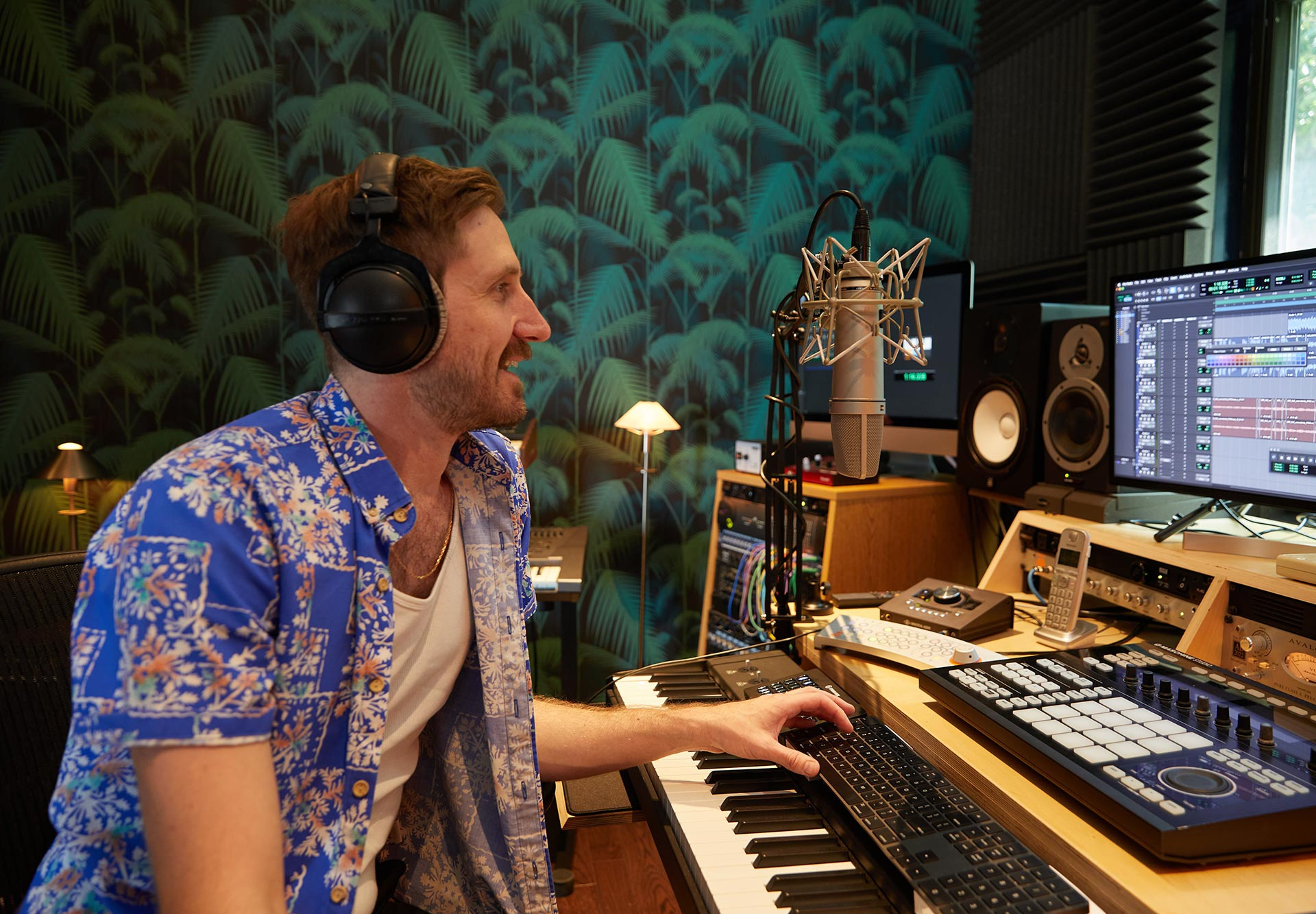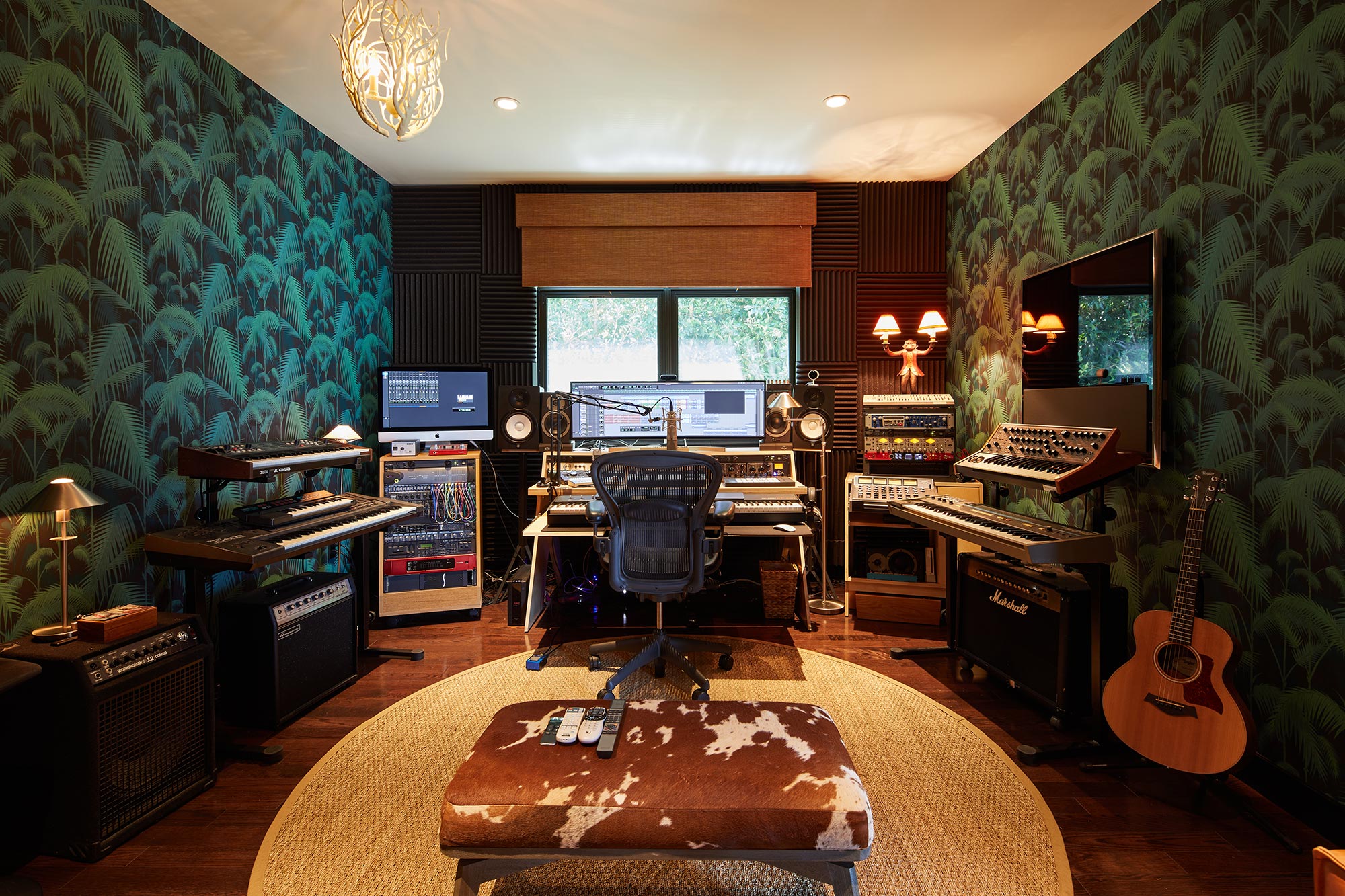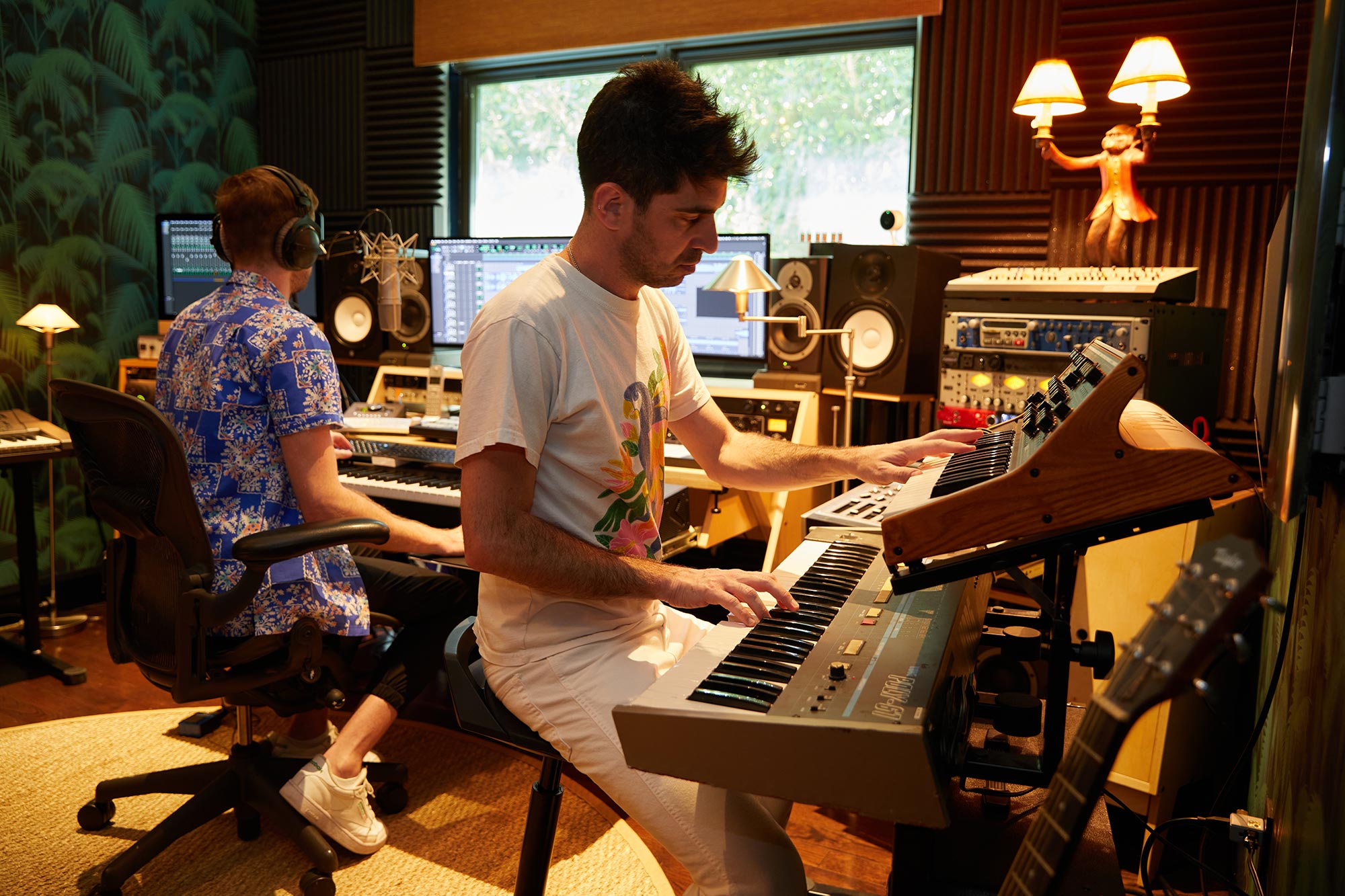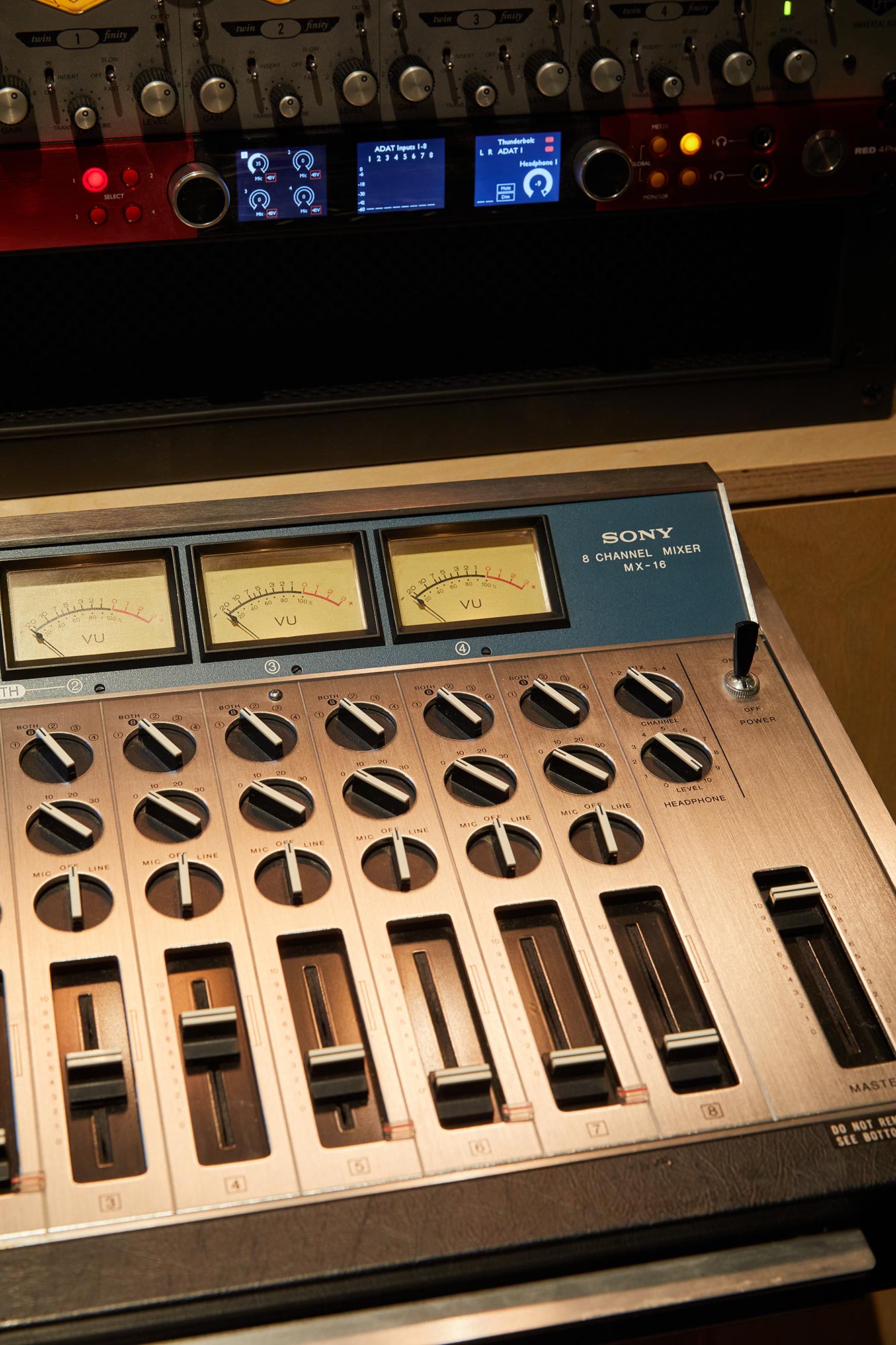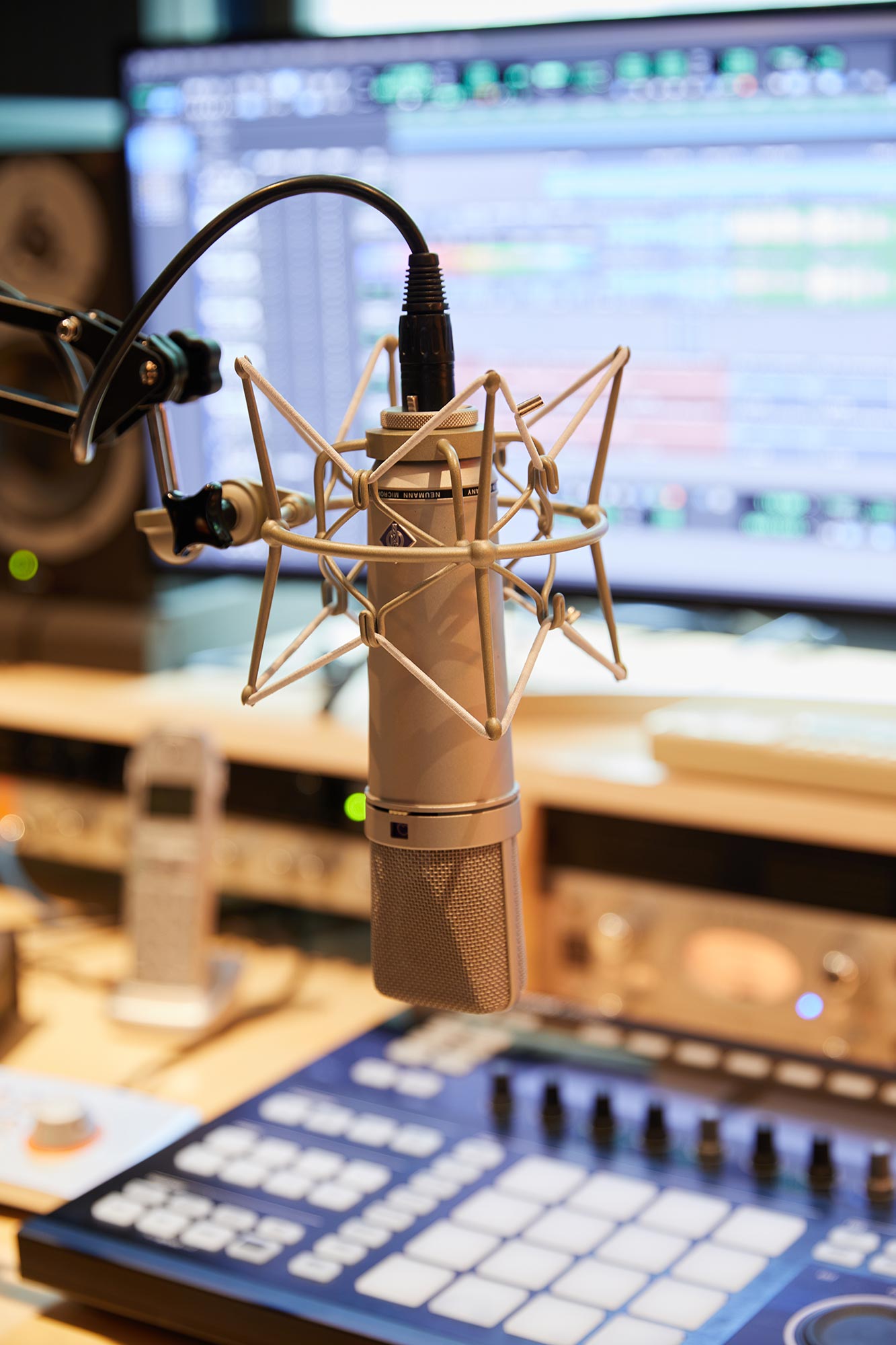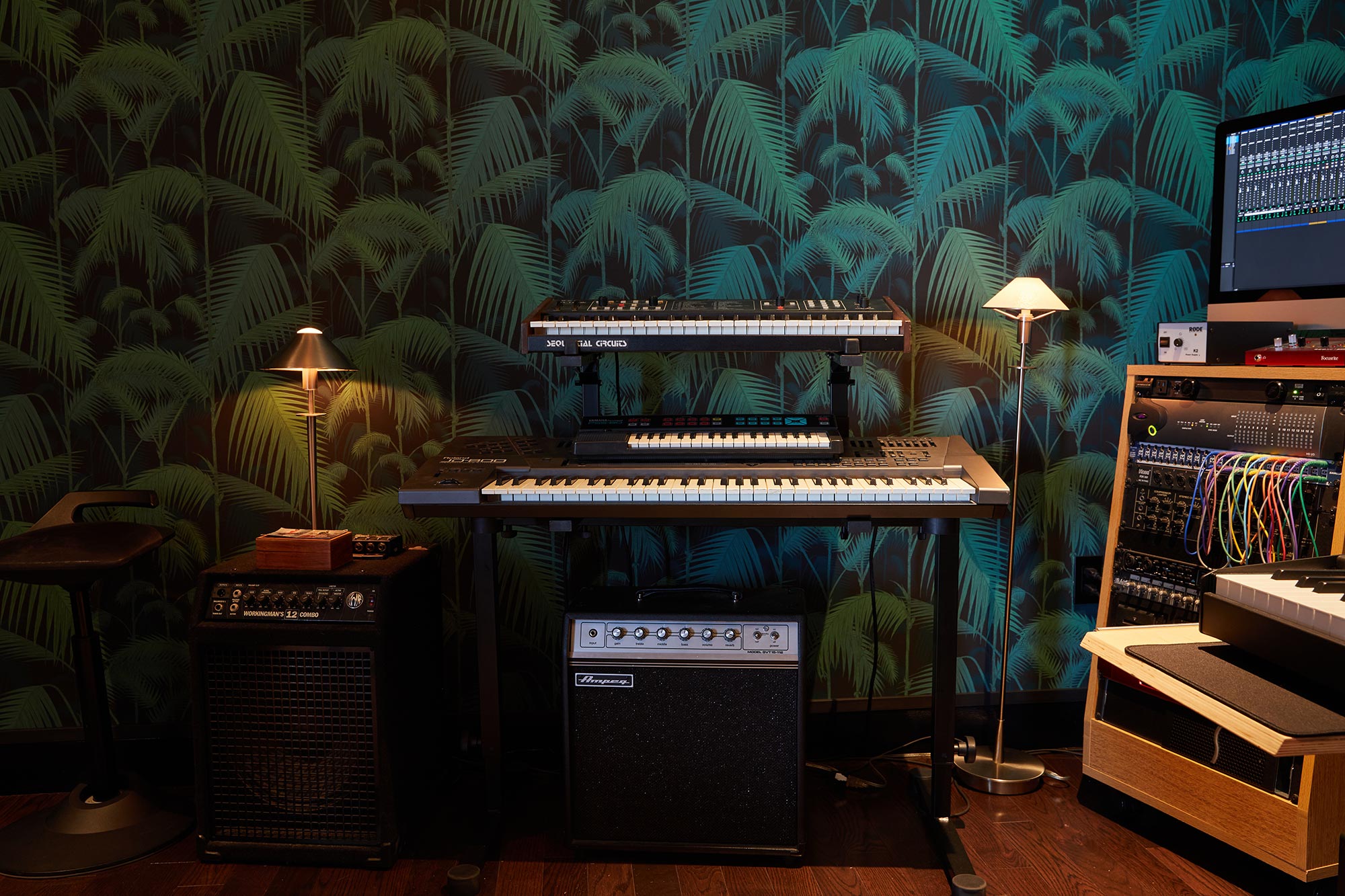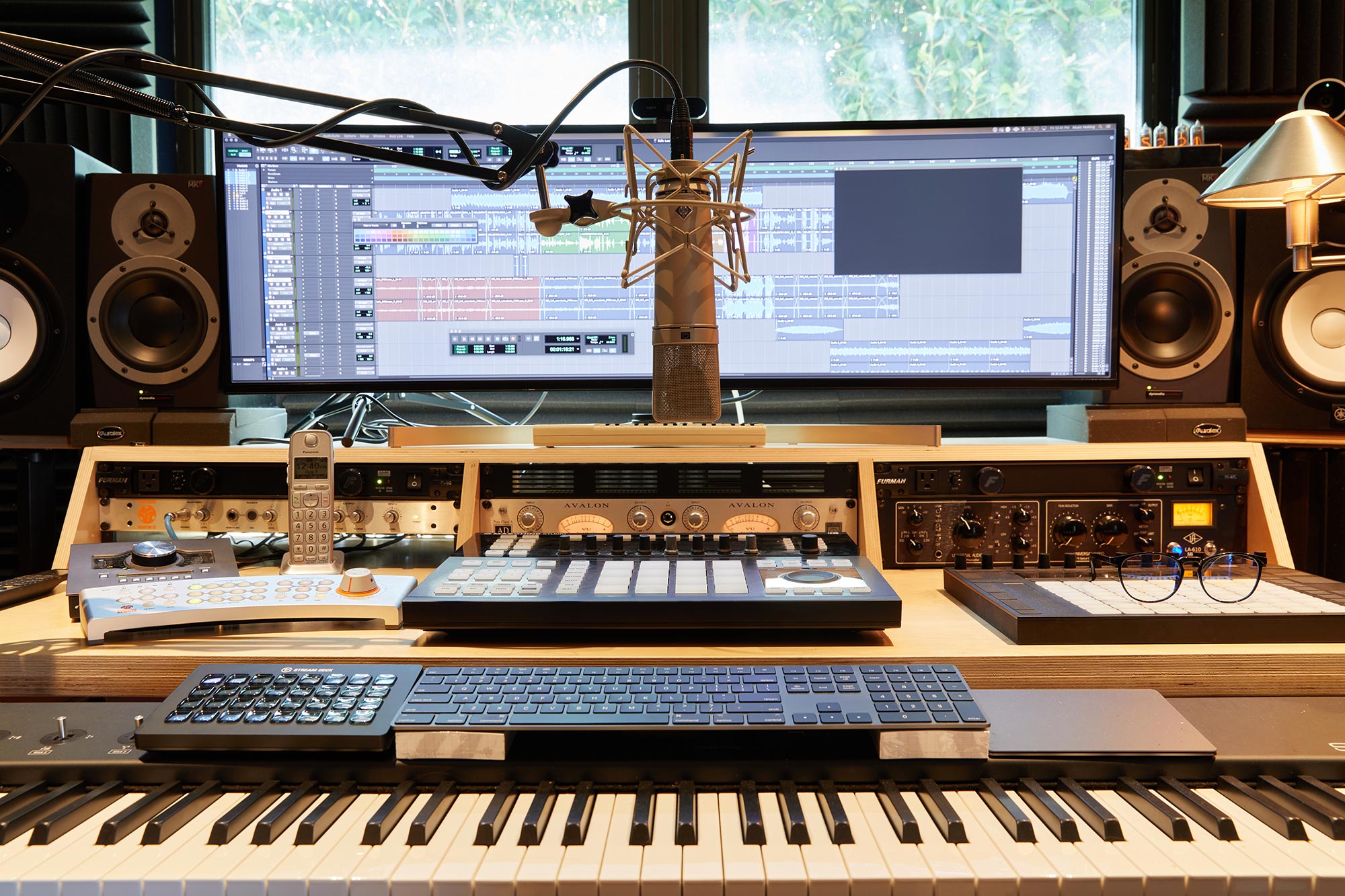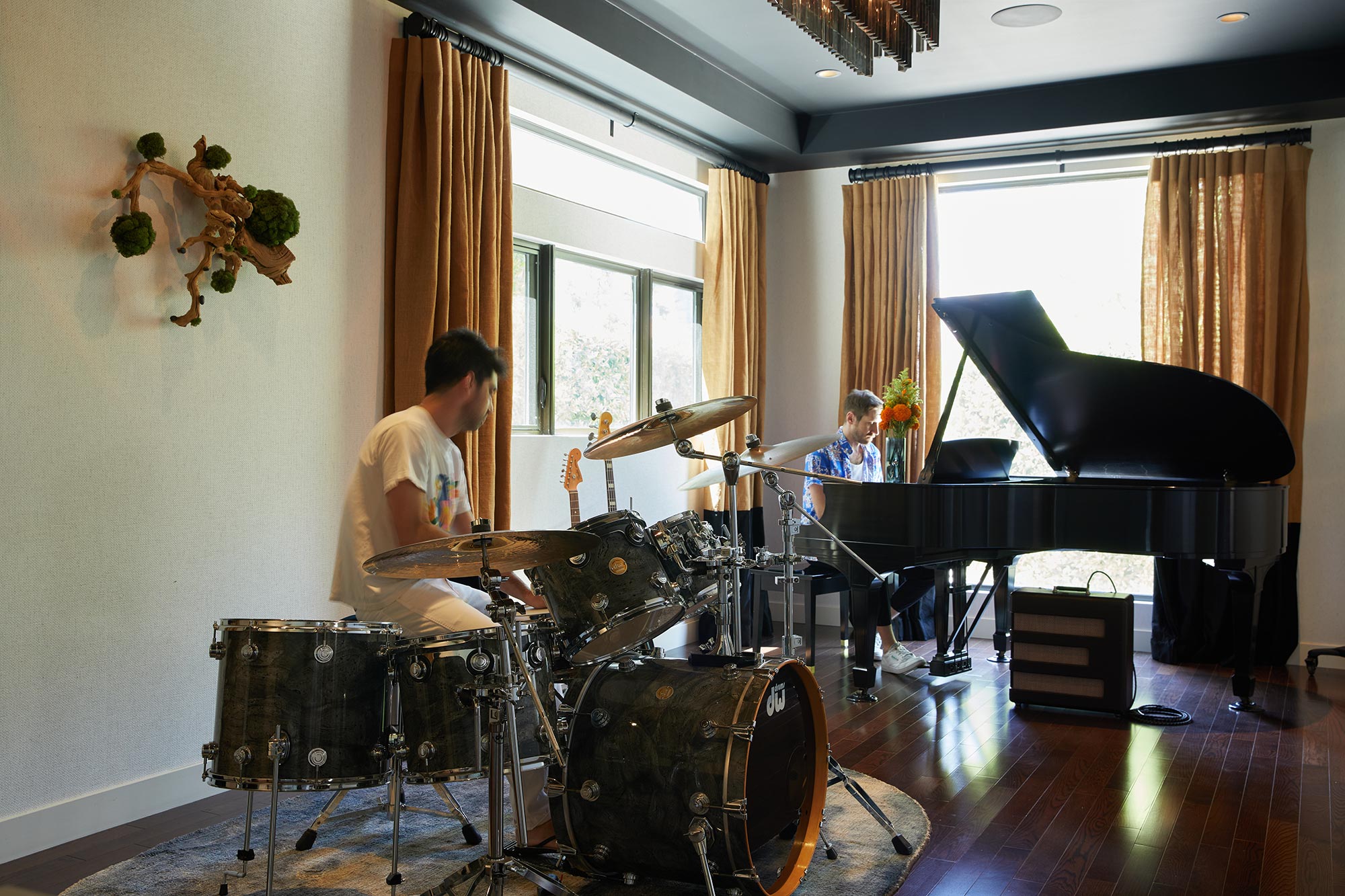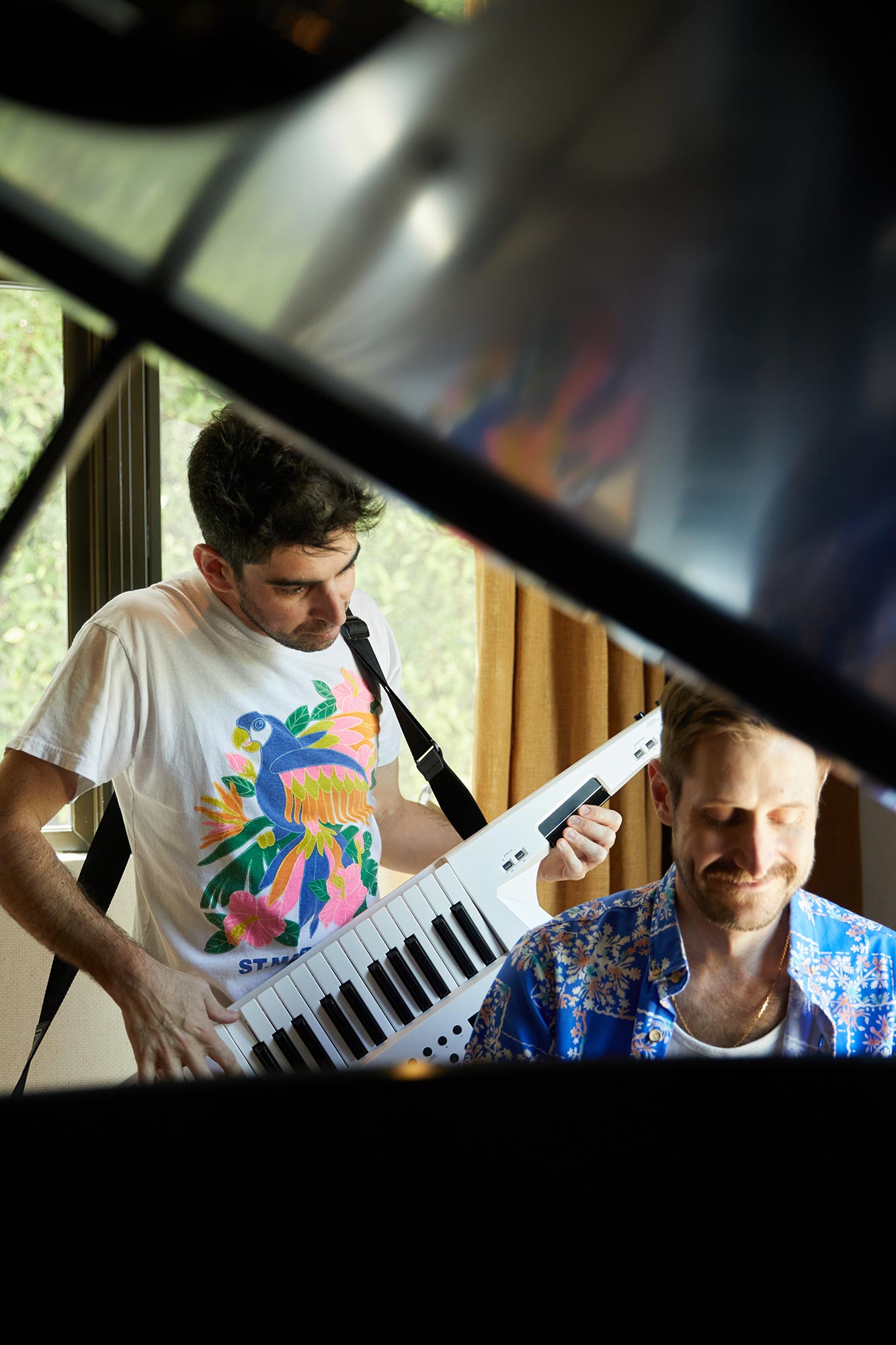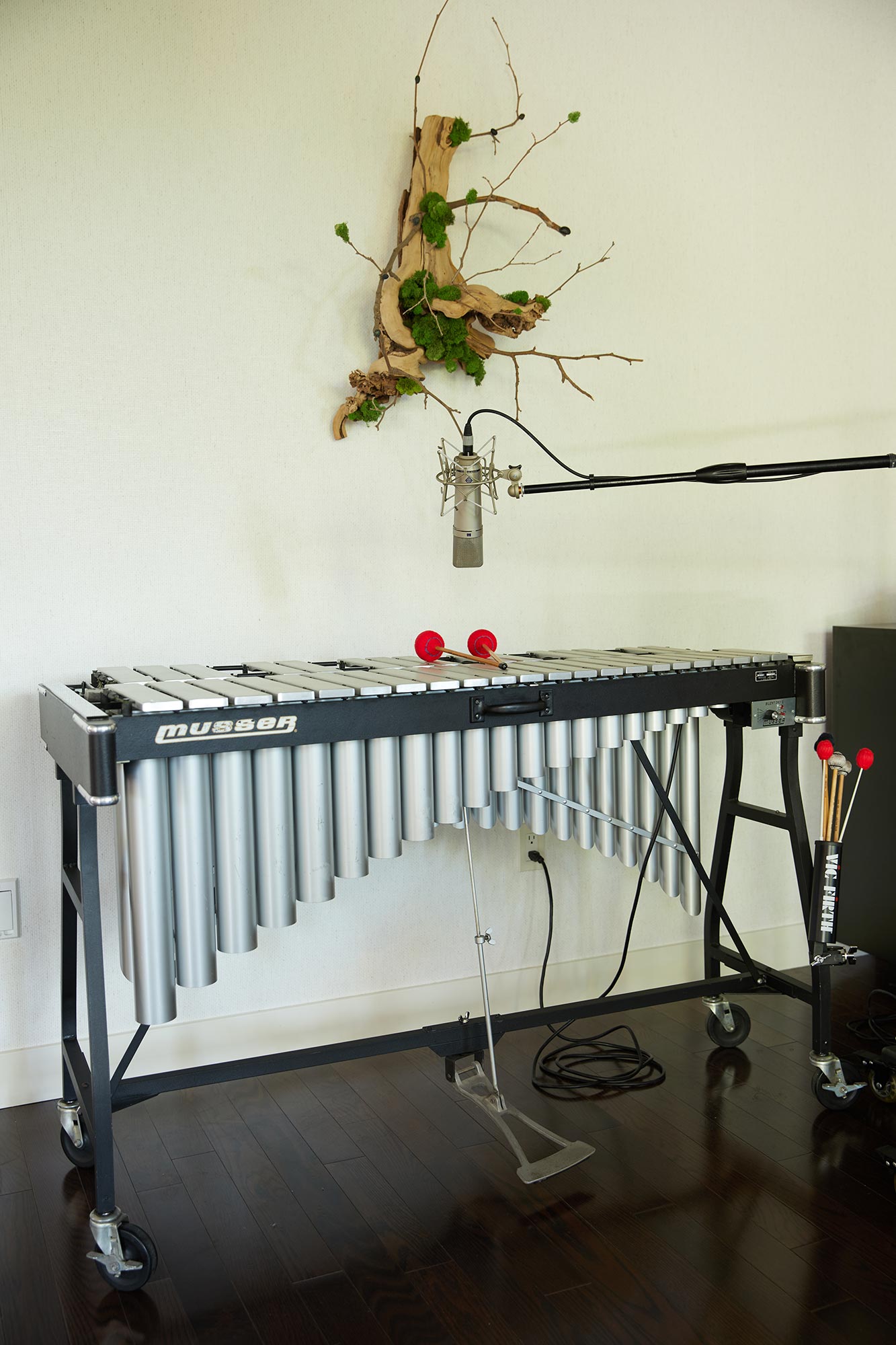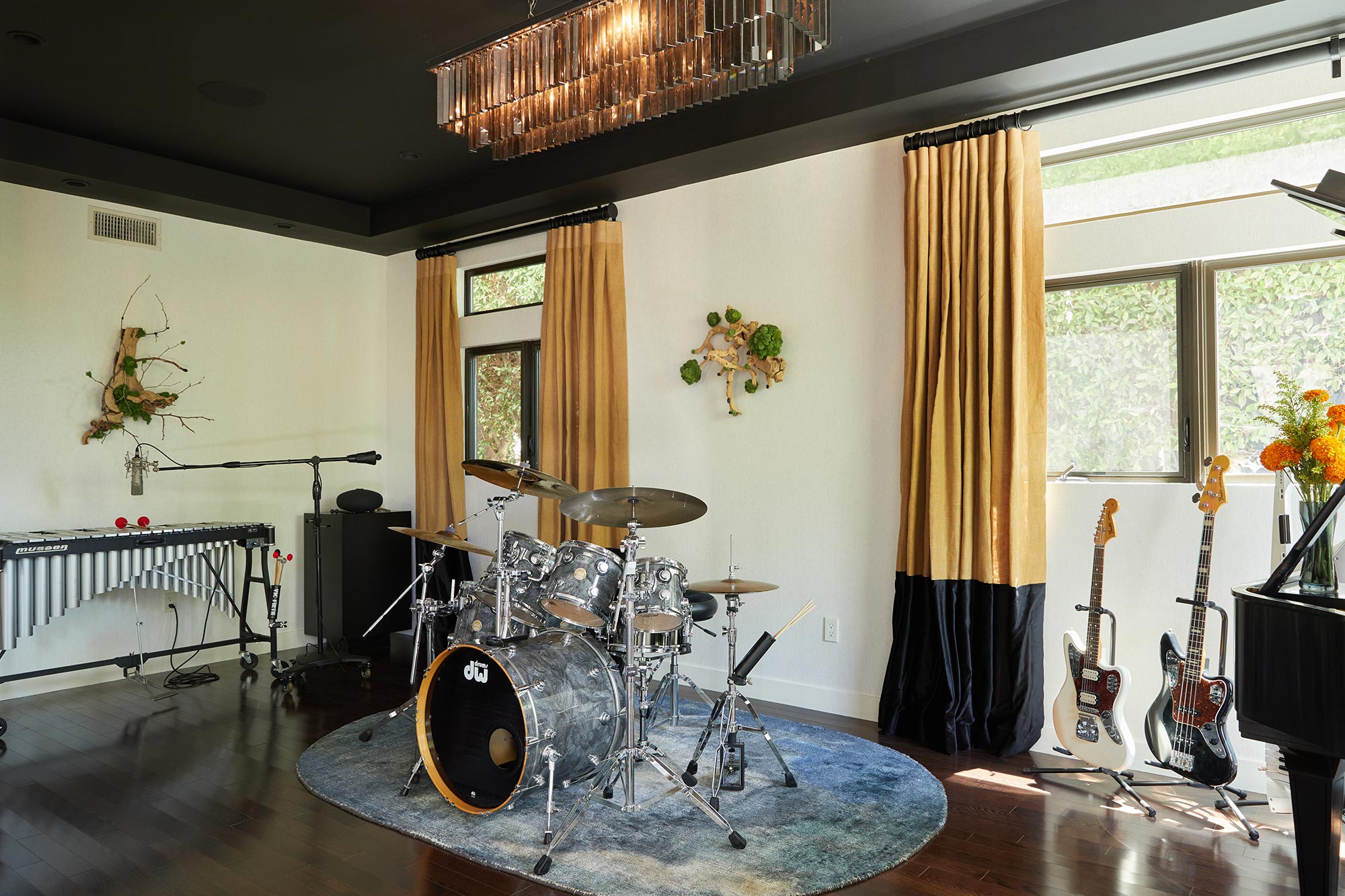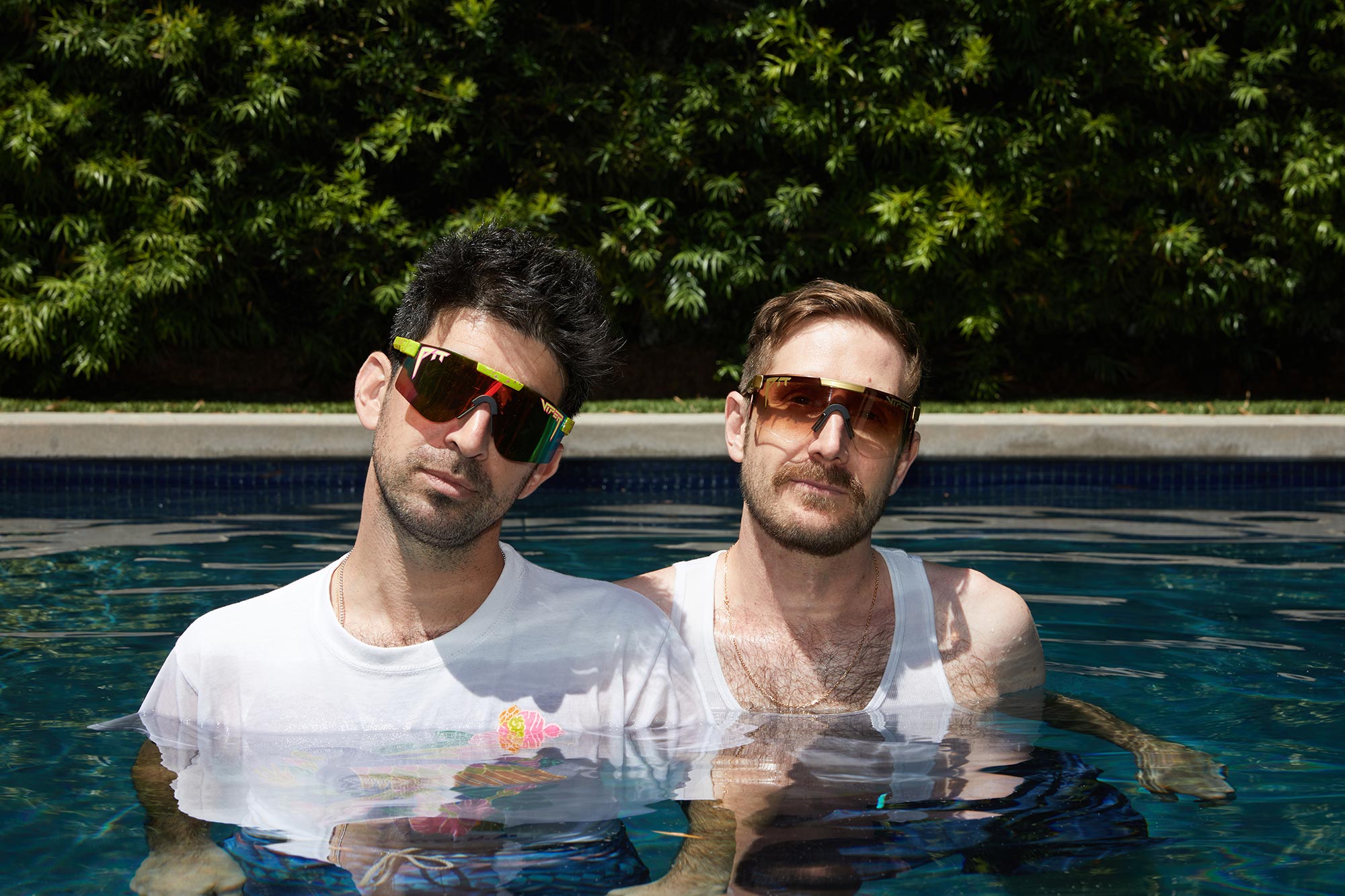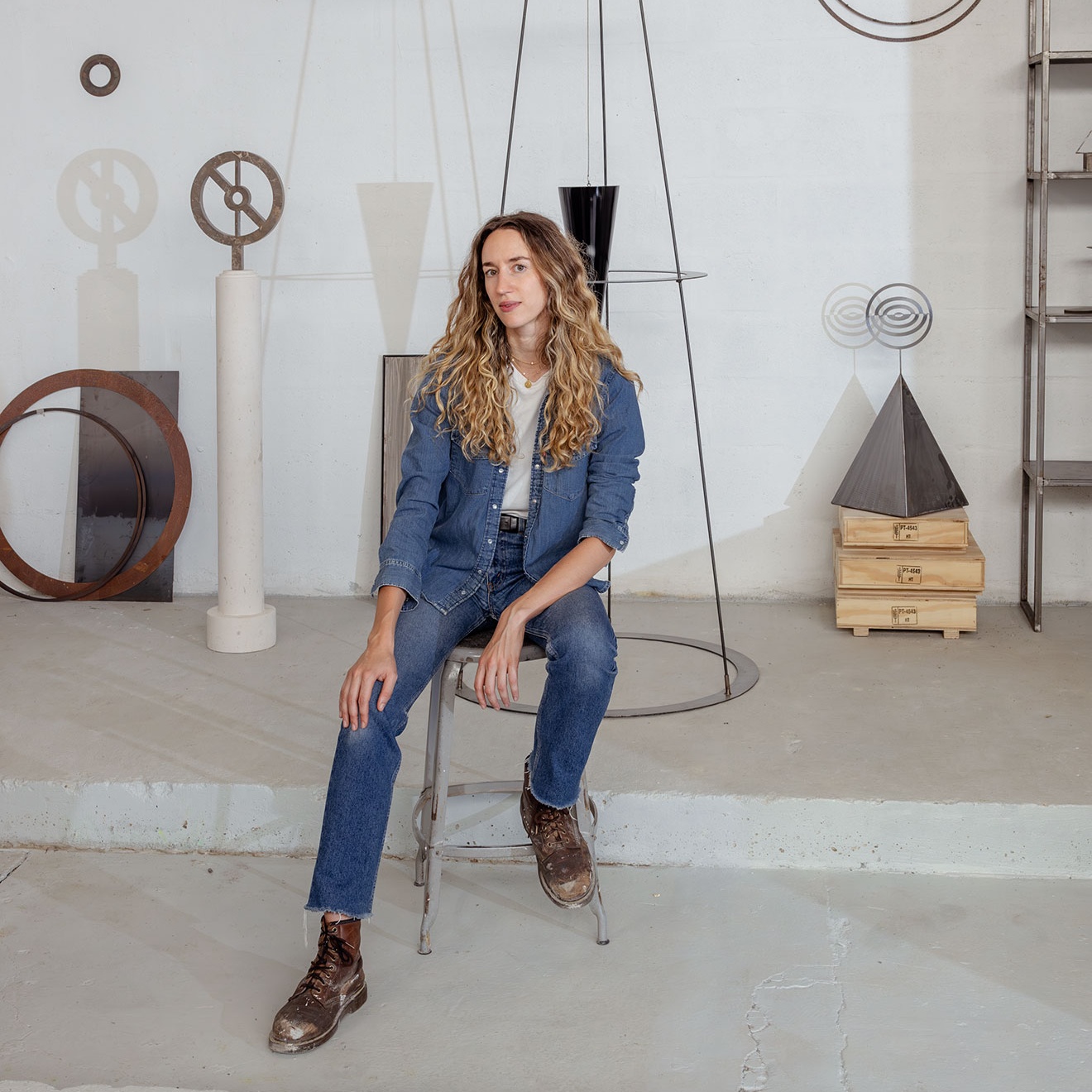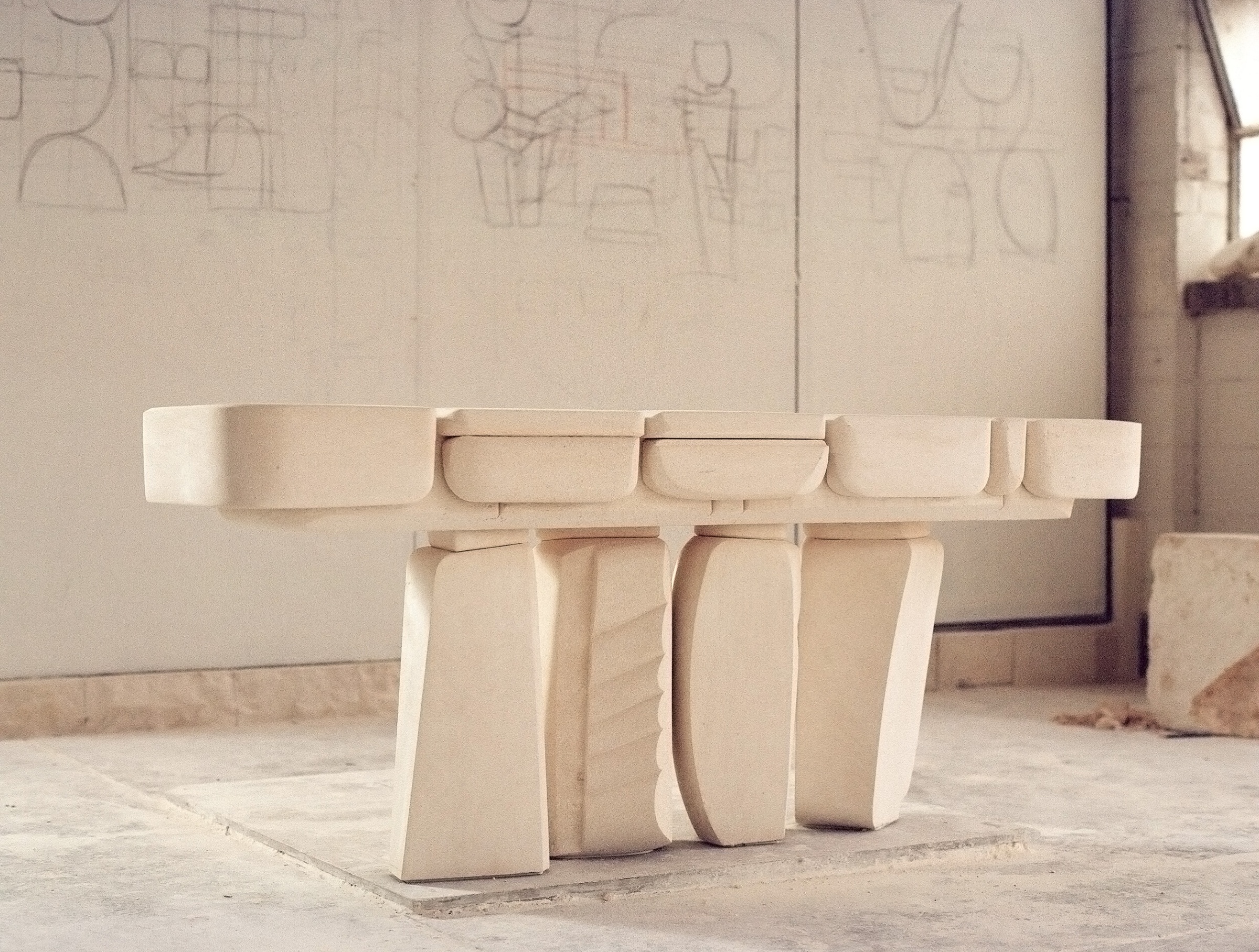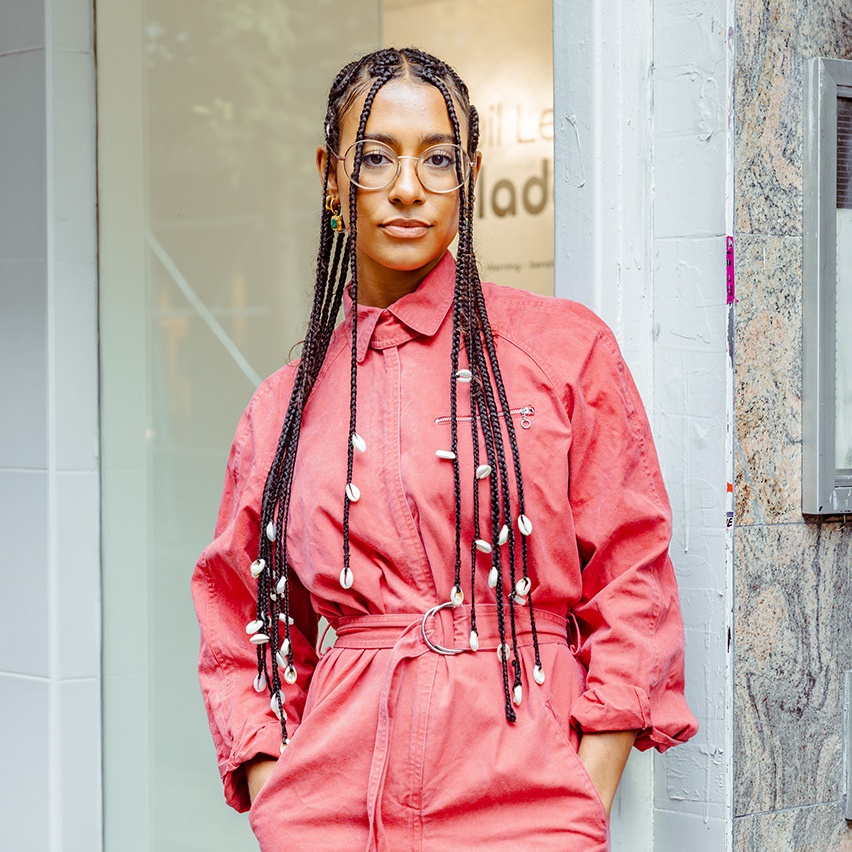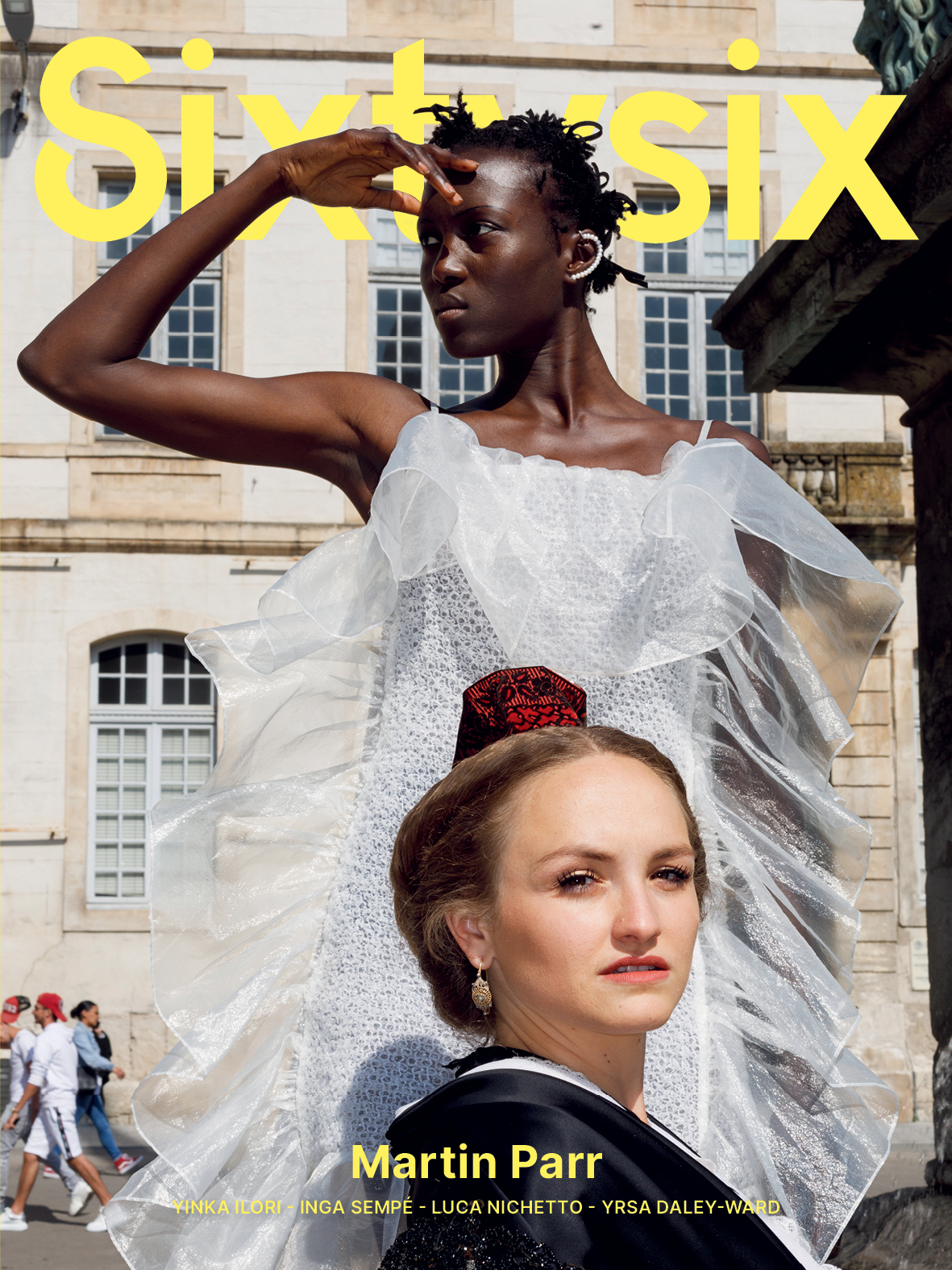Behind the Mic goes behind the scenes to photograph some of the most exciting podcast studios across the world, documenting the creative and production processes as well as the technology used to bring each episode to life.
“Oh, and there’s that thing,” says Bennett Barbakow, pointing to a 3-foot, many-pronged branch resting on the side table outside his at-home studio. “There’s an instrument we built.”
I’d assumed it was Kinfolk-inspired decor, but no. This isn’t just a stick, but the Sticke—an electronic musical instrument hand-built by Bennett and an assistant-turned-friend, Zach Alterman. A closer look at the dry grapevine reveals a USB port to connect the Sticke to a computer, plus various custom patches and programs one can play. There’s a small mixing station, a beatpad, a theremin-esque controller, a synth strip, and computer wiring running through the center of it. There’s no real reason for the Sticke to exist, but it exists for the same reason so many Test Pattern Media projects do: because Bennett, Max Barbakow, and Rob Amjärv wanted it to exist.
- Bennett Barbakow’s at-home recording studio is home to a number of creative projects on any given day. Photo by Ye Rin Mok
Bennett founded Test Pattern in 2005, and Rob joined around 2010, around the time Bennett’s brother Max joined as a partner as well. In the broadest terms, Test Pattern is a full-service production company, doing everything from commercials to art installations to podcasts to film and TV. Their website boasts dozens of name-brand clients you’ve certainly heard of, whose products you’ve probably used today. But even with that corporate cashflow, even with his hedged-in pool in the heart of Los Angeles, Bennett refers of the team as “a family of creative youngins.” Yet Test Pattern is well-established enough to pick up only the projects that one, excite them creatively, and/or two, have a big budget, to keep the machine running and allow them to invest time in their less commercial, artistic side-projects. “We’re not a podcasting company. We’re not a commercial company,” Bennett says. “We like to do projects that we like to do.”
- Rob Amjärv (left) and Bennett Barbakow work on projects like the “SmartLess” podcast. Photo by Ye Rin Mok
- Songwriting, recording, and podcast editing all happen in energetic bursts between Zoom calls, brainstorms, and noodling around. Photo by Ye Rin Mok
- Test Pattern sent at-home podcasting kits to the “SmartLess” hosts, including a Neumann u87 microphone, to tape remotely. Photo by Ye Rin Mok
Bennett is tall and slender, in shorts and flip-flops, born and raised on the westside of Los Angeles. He’s the chatty one, the face of Test Pattern, the one who, per his own assessment, can “play every instrument badly.” Bennett has six turntables always plugged in—he spent his time at boarding school and Brown University “obsessively” scratch DJing. Rob is quieter, lets Bennett do the talking. He’s the night owl; Rob is the morning guy. Also an LA native, Rob is the son of an Estonian musician and grew up encouraged to explore his own voice through music. “I tried formal training as well,” says Rob, “but I really wanted to learn how to use Pro Tools for composing.” Rob undersells himself. The composer recorded his first album at age 13, graduated high school at 14, studied sound and video production in college, then moved to Lake Arrowhead and recorded three more albums. He joined Test Pattern around 2010, five years after its inception. Max, who co-wrote and directed the rom-com Palm Springs (2020), was in Atlanta shooting a new movie at the time of our interview.
- Music composition at Test Pattern happens in a casual, experimental manner. Photo by Ye Rin Mok
Bennett’s home studio is a contemporary, four-bedroom home in West Hollywood. The home does not scream “creative youngins.” Rather, this is the home creative youngins dream of one day owning, right down to the sparkling drum set and Steinway Grand piano from 1935 in the living room, the same one Bennett learned on as a kid. The open plan kitchen fans into a TV room, where Rob and Bennett spent much of the 2020 pandemic playing Mario Kart. In a room just off the den, I see a punching bag hanging from the ceiling—just like the one Jason Bateman roasts Will Arnett for owning on Test Pattern’s podcast SmartLess.
- A former bedroom-turned-control room control room is now home to vintage synthesizers, a weighted digital keyboard, and a Neumann u87 microphone. Photo by Ye Rin Mok
As most of Test Pattern’s work is on a project by project basis, with quick turnarounds, SmartLess is, per Bennett, “The first and only regular gig we’ve had in our lives.” The conversational podcast is hosted by Jason, Will, and Sean Hayes, who have all been friends and on-and-off creative collaborators for years. Each episode, the three are joined by a surprise celebrity guest, ranging from Zach Galifianakis to Kamala Harris to Megan Rapinoe. The guests are often Hollywood types, and the chitchat can sometimes skew pretty inside baseball-y. But the casual conversation succeeds in feeding the listener that eternal, alluring falsehood: Celebrities, they’re just like us!
- Not one, not two, but five drum kits live in Bennett’s house, as well as a beautiful 1935 Steinway Grand piano. Photo by Ye Rin Mok
As so many podcasts did, SmartLess began as a quarantine project in March 2020. Test Pattern sent at-home podcasting kits to the hosts—including a Neumann u87 microphone, Rob’s go-to for acoustic recording—to tape remotely. Save for the moments when, say, Jason roasts Will for some odd art in his background, it’s easy to forget the hosts aren’t all in the studio together. Even with vaccinations and Covid restrictions easing, the SmartLess team has opted to keep the convenient remote recording setup. They record conversations on Saturday mornings, then Bennett, Rob, and their co-producer Michael Grant Terry take the week to edit the episode (which, for SmartLess’ first year of existence, went live at 3am on Monday mornings, all but ruining the guys’ Sunday afternoons). Things are changing a bit at SmartLess, though: Unlike most quarantine projects, Amazon just bought exclusive early release rights to SmartLess episodes for, reportedly, somewhere north of $60 million. No offense to your sourdough starter.
- Bennett Barbakow and Rob Amjärv often play music from Bennett’s home and studio setup. Photo by Ye Rin Mok
- Musical instruments are often mic’d up using Neumann’s top microphones inside Bennett Barbakow’s West Hollywood home. Photo by Ye Rin Mok
The company used to work out of a studio on Sunset Boulevard until in 2016, when Bennett bought his current home, and then took about 2 years to slowly move the studio from Sunset to the house, and eventually they no longer wanted to go to the office at all and instead work out of their creative playpen. At Test Pattern, songwriting happens in unstructured bursts in-between Zoom calls, noodling around, tinkering with instruments, and sounding out what feels right, genre be damned. Such casual collaboration happens all over Test Pattern. The studio isn’t in Bennett’s house; rather, the house itself is a recording studio. Using a Focusrite RedNet 2 audio interface, the guys can mic up their instruments anywhere in the house and record everything up in the control room upstairs via Ethernet. Said control room was once a bedroom; now it’s lined with soundproofing foam panels, vintage synthesizers, a weighted digital keyboard, another Neumann u87. The brown leather couch, cowhide coffee table, and fern-print wallpaper makes it feel cozy, casual, a place to hang and have a beer—wait, no, a hard seltzer.
- Work from home looks different for Bennett Barbakow, composer and founder of Test Pattern Media. Photo by Ye Rin Mok
Next to the recording room is a guest bedroom absolutely teeming with musical instruments. Not even just instruments, but items that might make an interesting percussive sound. One peek inside might send chills down the spine of a parent of toddlers: a half-moon tambourine, a metal slide guitar, yet another drum kit (they have five total), tangles of cords and cables, cowbells, xylophones, maracas, all stacked up on the bed and precariously on shelves. The room embodies the spirit of the company: Music composition at Test Pattern happens in a casual, experimental manner, noodling around, playing with toys, only to turn around and make toys of their own. Literally. Test Pattern is currently writing music for an interactive toy—they can’t tell me too many details, but it involves dance, motion, and the ability to make music on the device. I’m envisioning a blend of the Sticke and a Bop-It.
- Bennett Barbakow and Rob Amjärv are partners and directors at Test Pattern Media. Photo by Ye Rin Mok
“Professional ADD”—that’s what Bennett and Rob jokingly call their business model. It’s self-effacing and boyish, but Bennett then turns around and compares Test Pattern’s fluidity to Apple’s strategy. The company started out making computers; now their main game is phones and content to engage with on them. “We’ve been rejected being one thing for a long time,” says Bennett. When Test Pattern sees an open door, they walk through it. The critical success of Palm Springs (including an Indie Spirit Award and Golden Globes nominations) has offered new opportunities in Hollywood; they’re currently developing a television show and multiple feature films.
“The through line is there is no through line,” Bennett says. But of course, that’s not true. The through line is Bennett, Rob, and Max’s taste, their gut instincts, and their hard-to-define aesthetic sensibility. It’s whatever they feel like.
